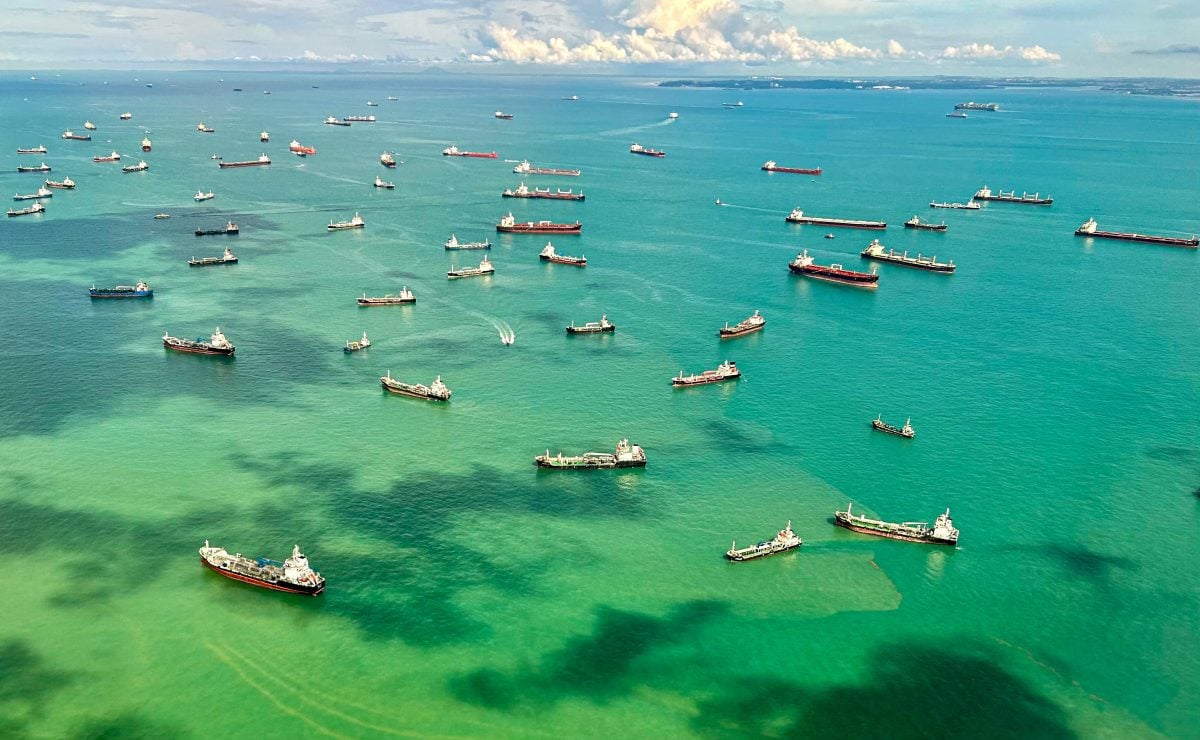On the coast of Nigeria, a few hours’ drive from the centre of Lagos, a small corner of Africa resembles a mini-Singapore. The Lagos Free Zone is operated by Tolaram, a Singapore-based conglomerate. The sprawling 850-hectare site, which sits adjacent to the Chinese-operated Lekki Port, offers various tax and customs incentives for companies that set-up manufacturing facilities within the zone.
Kellogg’s, Colgate-Palmolive and BASF are among those who have been attracted to the site, which has a distinctly Singaporean flavour thanks to the manicured lawns and rows of neatly planted palm trees that lie outside the factory buildings. Asian artwork even adorns the walls of the headquarters of the zone.
Tolaram is one of several Singaporean companies in the trade, logistics and manufacturing sectors to have planted deep roots in Africa. Other well-known companies with activities in Africa include agribusiness giant Olam International (which originated in Nigeria, before moving its headquarters to Singapore) and food processing group Wilmar International. And, as more Singapore-based companies look to diversify, the stage is set for greater investment in Africa.
Shipping success
An obvious starting point for Singapore’s engagement in Africa comes from its mighty shipping industry. Singapore has been a major international shipping hub since the early nineteenth century and as its port expanded several Singapore-headquartered companies have grown into globally important players in the shipping industry.
Pacific International Lines (PIL), one of Singapore’s largest shipping companies, has a longstanding presence in Africa. It first begun to offer services to ports in the Red Sea and on the East African coast more than 50 years ago, before expanding to serve the southern and western shores of the continent. Some 30% of PIL’s Asian exports are now bound for Africa, with the company providing seven services a week that cover a network of more than 40 ports.
“Africa is not a future opportunity – it is a region where tangible progress has already been made, and there is an interest to develop more business relationships between Singapore and Africa,” says Lionel Chatelet, chief commercial officer at PIL.
Chatelet points out that Singaporean companies are at a stage where they need to expand beyond their traditional markets in Asia. Africa, he notes, is an obvious place to turn. “It represents one of the world’s fastest-growing regions, with rapid urbanisation, a growing middle class, infrastructure developments, and significant natural resources.”
He emphasises that one of the keys to tapping into the “immense potential” of the continent is a commitment to a long-term approach and to building local partnerships.
Indeed, PIL’s decades-long experience in the continent has helped the company to harness opportunities to launch a range of auxiliary services beyond shipping. “We are actively developing our capabilities to develop intermodal corridors, using trucks and rail, to reach landlocked regions,” says Chatelet. “We intend to team up with regional partners to increase our reach and propose last mile delivery solutions to our customers in the near future.”
Digital dividend
Along with shipping and commodity trading, Singapore also has a global reputation as a leader in using technology to make government services more efficient. Singapore itself announced in 2014 that it aimed to become a ‘smart nation’ that maximises digital technology in the delivery of services.
Given the concentration of expertise in both logistics and digital services in Singapore, it is not surprising that the city is home to a number of companies that specialise in using digital tools to enhance trade flows. One of these companies that has extensive experience in Africa is CrimsonLogic, which specialises in the digital transformation of trade, port and logistics operations, and is known for launching the world’s first one-stop portal for electronic trade declarations.
“We recognised in the early 1990s that many African nations were embarking on digital transformation journeys to raise efficiency and foster sustainable growth, particularly in government and trade systems,” says Chee Boon Lim, senior director for Africa and the Asia-Pacific region at CrimsonLogic. “Africa is a place where our expertise in technology-enablement in trade facilitation, port digitalisation and government services can add value and deliver tangible impact.”
CrimsonLogic has a regional hub in Rwanda, and has delivered trade facilitation and government solutions projects in countries including Djibouti, Kenya, Mozambique, Namibia and Nigeria. Lim says the company is “committed to deepening our engagement and expansion throughout the African continent”.
And, in the longer term, he is convinced the conditions are ripe for further growth. “Africa’s rapid urbanisation, the emergence of a youthful, tech-savvy middle class, and growing regional integration signal extraordinary long-term prospects as a frontier market.”
“We see governments across the continent actively investing in digital infrastructure and embracing innovative solutions. The appetite for modernisation in public services and trade positions Africa as a leader in adopting leapfrogging technologies.”
Adding value
Perhaps the most significant opportunity in the long term for Singaporean companies in Africa is to combine the provision of logistics with local manufacturing hubs. This, indeed, was the model that Singapore itself followed after independence, as it fostered the growth of manufacturing companies – initially in low-cost sectors, then later in high-tech industries – alongside its port.
Tolaram has sought to replicate this model in Nigeria, with the manufacturing facilities in its Lagos Free Zone sited right next door to the deepwater Lekki Port.
Another Singapore-based company that is seeking to create value-added industries in Africa is agricultural commodities company Valency International. “Africa is a critical market for Valency due to its vast agricultural potential, rapidly growing population, and increasing demand for value-added products,” says Anoor Nalla Senapathy, Group CFO at the company.
“The continent offers a unique opportunity to build integrated agri-value chains.” Senapathy notes that Valency has been investing in agro-processing infrastructure, including in warehousing and logistics, for more than a decade. Last year, its Nigerian subsidiary opened a major supply chain facility in Ibadan to help store and process various food crops.
“Investment in the agri-supply chain, particularly in modern agro-processing facilities, can be transformative for Africa’s economies,” says Senapathy. “Africa has abundant arable land and a youthful population, yet much of its agricultural output remains unprocessed and exported in raw form.”
Valency has received investment from several development finance institutions, including British International Investment, France’s Proparco and the International Finance Corporation. This reflects the potential for agro-processing infrastructure to bring social and economic benefits to Africa, much like value-added manufacturing did in post-independence Singapore.
“By investing in agro-processing, value is added locally, which drives job creation, increases export revenues, and reduces post-harvest losses,” says Senapathy.
“At a broader level, a stronger agri-supply chain enhances food security, reduces import dependency, and positions Africa to compete in global agri-markets under initiatives like the African Continental Free Trade Area.”
Although no African country will follow exactly the same development path as Singapore, the Asian city’s strategic focus on using world class logistics infrastructure to foster industrial development offers compelling lessons for Africa. As the continent seeks to accelerate the growth of value-added industries, cooperation with Singaporean companies could be an important factor in its success.
Want to continue reading? Subscribe today.
You've read all your free articles for this month! Subscribe now to enjoy full access to our content.
Digital Monthly
£8.00 / month
Receive full unlimited access to our articles, opinions, podcasts and more.
Digital Yearly
£70.00 / year
Our best value offer - save £26 and gain access to all of our digital content for an entire year!

 Sign in with Google
Sign in with Google 



